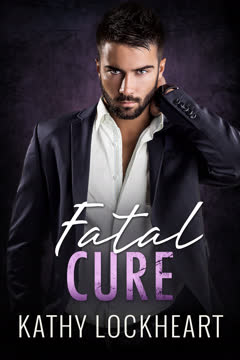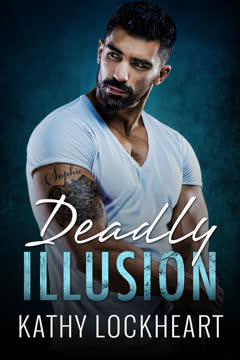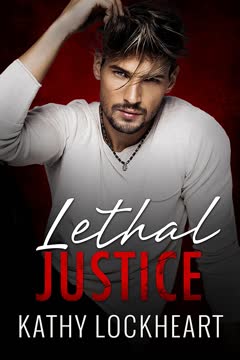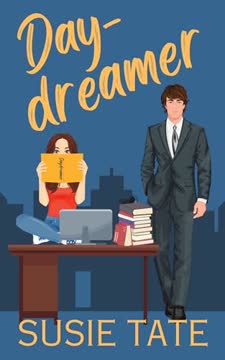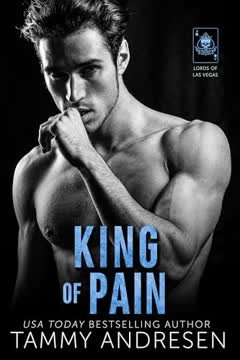Plot Summary
Elevator Inferno
Fallon O'Connor, a driven Chicago cop, meets the enigmatic Dillon in a high-rise elevator. Their flirtatious banter is cut short when the elevator stalls and a fire erupts, trapping them between floors. As smoke thickens and panic rises, Fallon's resourcefulness and Dillon's strength become their only hope. Together, they battle suffocating heat, prying open doors and climbing through a smoke-filled shaft, barely escaping before the elevator plummets. The ordeal forges an instant, intense connection between them—one born of adrenaline, fear, and the shared will to survive. But as they emerge into the chaos of the burning building, neither realizes how this harrowing morning will ignite a chain of events that will test their loyalties, their hearts, and their very lives.
Smoke and Survival
Outside, Fallon and Dillon witness the devastation as firefighters battle the inferno. Fallon's thoughts drift to her fractured family, destroyed by addiction, and the relentless drive that led her to law enforcement. Dillon, too, reveals a glimpse of his own burdens—a disabled brother and a mother he fiercely protects. Their vulnerability in the face of disaster draws them closer, but Fallon's focus remains on her career: she's late for her first DEA task force meeting, a chance to finally strike at the drug organizations that ruined her childhood. As she rushes away, the fire's smoke lingers in her lungs and in her mind, a symbol of the past she's desperate to escape—and the new dangers she's about to face.
Task Force Initiation
Fallon arrives late to the DEA task force, facing the legendary Sergeant Burch's wrath. The team's target: the Chicago Syndicates, a sophisticated drug empire with cartel ties. Burch's warning is clear—this is no place for mistakes or cowboys. The only clue is a mysterious tattoo: a scorpion clutching an American flag, belonging to a Syndicate captain. As Fallon struggles to prove herself, she's haunted by her past and the pressure to succeed. The task force's first case—a captain found tortured and dumped—signals the Syndicates' ruthlessness. Fallon's best friend Shane, her anchor since childhood, worries for her safety. The lines between duty, ambition, and personal vendetta begin to blur as the investigation deepens.
Dangerous Connections
Fallon and Dillon's paths cross again, their chemistry undeniable. Yet, as their relationship blossoms, Fallon's instincts as a cop war with her growing feelings. Dillon's protectiveness borders on possessive, and his past remains shrouded in mystery. Meanwhile, the task force faces setbacks: informants are silenced, and the Syndicates' operations remain impenetrable. Fallon's own family wounds resurface, especially as her estranged, addicted father pleads for a second chance. The city's underworld feels closer than ever, and Fallon can't shake the sense that danger is circling—not just from criminals, but from secrets much closer to home.
Walls and Wounds
Fallon grapples with intimacy, haunted by the belief that her past makes her unlovable. Shane urges her to let people in, but old habits die hard. Dillon, too, reveals his scars: a father who abandoned him, a brother he raised, and the choices he made to survive. Their date at a carnival becomes a bittersweet reclaiming of lost innocence, as Dillon tries to give Fallon the childhood she never had. Yet, beneath the laughter, both are hiding truths that could destroy them. Fallon's resolve to keep her heart guarded begins to falter, even as the shadows of her past—and Dillon's—grow longer.
Unlikely Romance
Fallon and Dillon's relationship deepens, their connection electric and healing. For the first time, Fallon allows herself to be vulnerable, sharing the pain of her parents' addiction and her mother's death. Dillon responds with empathy, revealing his own struggles and the lengths he went to for his family. Their passion is undeniable, but so is the sense of impending doom. As the task force closes in on the Syndicates, and as Fallon's father's health deteriorates, the couple's happiness feels fragile—threatened by secrets, guilt, and the ever-present specter of violence.
Secrets and Scars
Fallon discovers the scorpion tattoo on Dillon's back—the very mark the task force is hunting. Her world tilts as she realizes the man she loves is a Syndicate captain. Confrontation is inevitable. Dillon confesses: he entered the drug world out of desperation, to save his family, but now he's trapped. Fallon's sense of betrayal is matched only by her heartbreak. Duty and love collide as she tries to arrest him, but Dillon escapes, warning her that both their lives are now in danger. The lines between cop and criminal, victim and perpetrator, blur beyond recognition.
Carnival of Innocence
In a desperate attempt to reclaim lost happiness, Dillon takes Fallon to a carnival, giving her the carefree night she never had as a child. Their laughter and intimacy are a brief respite from the storm gathering around them. But the next day, the task force suffers a devastating blow: a fellow officer, Marks, goes missing, presumed taken by the Syndicates or their cartel allies. The city's underworld is shifting, and Fallon realizes that her personal and professional lives are now fatally intertwined. The cost of love—and of justice—has never been higher.
The USB Revelation
The autopsy of the murdered captain reveals a USB drive, swallowed in a desperate bid to hide information. The data points to a long-missing cartel bookkeeper, suggesting the Syndicates are planning a major move—possibly an alliance or takeover by the Baja Cartel. As the task force scrambles to decode the evidence, Fallon's personal life unravels. Her father's death—an apparent overdose—devastates her, and Dillon's warnings about a mole within law enforcement grow more urgent. Trust is in short supply, and every lead seems to end in blood.
Family Ties Unravel
Fallon's investigation leads her to a horrifying truth: Dillon's father, presumed dead, is alive and a high-ranking cartel member—responsible for the drugs that destroyed her own family. The revelation is a gut punch, forcing both Fallon and Dillon to confront the sins of their fathers and the cycles of pain they've inherited. As the cartel's plans accelerate, and as the task force prepares a risky undercover operation, Fallon must decide where her loyalties truly lie. The past and present collide in a maelstrom of violence, guilt, and impossible choices.
The Scorpion Tattoo
Fallon volunteers for a dangerous undercover operation at a Syndicate party, hoping to gather intel on the cartel's plans. Disguised as a sex worker, she navigates a den of killers, only to discover the Baja Cartel's top brass have arrived in Chicago. The operation goes sideways: her partner is executed, and Fallon is captured. Torture and death seem certain, but Dillon risks everything to save her, revealing his love and his willingness to sacrifice himself. Their escape is a gauntlet of violence, betrayal, and desperate hope.
Truths and Betrayals
As the cartel's plot to bomb Navy Pier unfolds, Fallon is betrayed by her own boss, Burch, who is blackmailed into delivering her to the cartel. On a boat rigged with explosives, Fallon faces the cartel's sadistic leader, Gutierrez, and the ultimate test of her will. Tortured and livestreamed as a warning to law enforcement, she refuses to break. Dillon and Shane mount a daring rescue, but not before Dillon is gravely wounded by his own father. In a final, fiery confrontation, Fallon averts disaster, saving thousands but nearly losing the man she loves.
The Missing Officer
In the aftermath of the explosion, Dillon hovers between life and death. Fallon, battered but unbroken, refuses to leave his side. The city reels from the cartel's assault, and the task force is decimated by betrayal and loss. As Dillon's fate hangs in the balance, Fallon confronts the true meaning of love, forgiveness, and resilience. The ghosts of her parents, the scars of addiction, and the legacy of violence all converge in a moment of reckoning. Only by embracing both her pain and her hope can she find a way forward.
Undercover Gamble
With the cartel in chaos and the Syndicates weakened, Fallon and Dillon seize the chance to turn the tide. Dillon becomes a confidential informant, risking his life to help dismantle the organization from within. Fallon, now a full-fledged DEA agent, uses her hard-won insights to bring justice to those who destroyed her family and threatened her city. Together, they navigate the treacherous aftermath—haunted by loss, but determined to build something new from the ashes.
Cartel's Deadly Game
As the dust settles, Fallon and Dillon must reckon with the consequences of their choices. The city is safer, but the cost has been staggering. Dillon's cooperation earns him immunity, but not absolution. Fallon's career survives, but her heart is forever changed. They marry, determined to break the cycle of pain and create a family rooted in love, not fear. The scars remain, but so does the hope that healing is possible—even after the most fatal of wounds.
Blood and Fire
Years later, Fallon and Dillon welcome a daughter, naming her after Fallon's mother. The legacy of addiction, violence, and betrayal is not forgotten, but it is transformed. Through love, honesty, and the courage to face the past, they forge a future that honors both the lost and the living. The story ends not with vengeance, but with forgiveness—a fatal cure for the wounds that once seemed incurable.
The Final Confession
In a quiet moment, Fallon reflects on the journey that brought her here: the fires survived, the secrets unearthed, the love that refused to die. She understands now that healing is not forgetting, but integrating the pain into something greater. The ghosts of her parents, the sins of Dillon's father, the betrayals and sacrifices—all are part of the tapestry of her life. The fatal cure was never about erasing the past, but about finding the strength to love, to trust, and to begin again.
Love's Fatal Cure
The cycle of trauma is broken—not by violence, but by compassion. Fallon and Dillon, once enemies by fate, become partners in life and in justice. Their daughter grows up surrounded by the love that once seemed impossible. The city, scarred but resilient, moves forward. The story closes with a promise: that even in a world of fatal cures and deadly illusions, love endures, and hope is always worth fighting for.
Characters
Fallon O'Connor
Fallon is a fiercely determined Chicago cop whose life has been shaped by the trauma of her parents' addiction and her mother's death. Her drive to join the DEA is fueled by a personal vendetta against the drug world that destroyed her family. Fallon is intelligent, resourceful, and emotionally guarded, struggling to let others in for fear of abandonment. Her relationship with Dillon forces her to confront her deepest wounds and question the boundaries between justice and compassion. Over the course of the story, Fallon evolves from a woman defined by pain and vengeance to one capable of forgiveness, love, and hope. Her journey is one of healing—learning that true strength lies not in shutting out the world, but in embracing vulnerability and connection.
Dillon McPherson
Dillon is a complex figure: outwardly confident and magnetic, inwardly tormented by guilt and impossible choices. Forced into the drug trade as a teenager to support his disabled brother and abandoned mother, Dillon rises to become a Syndicate captain, marked by the infamous scorpion tattoo. His love for Fallon is both his salvation and his undoing, compelling him to risk everything for her safety. Dillon's greatest fear is becoming like his own father—a cartel leader responsible for untold suffering. His arc is one of redemption: from criminal to informant, from survivor to partner, from a man trapped by circumstance to one who chooses love and accountability. Dillon's willingness to sacrifice himself for Fallon and to confront his own legacy is the heart of the novel's emotional power.
Shane Hernandez
Shane is Fallon's childhood best friend and steadfast ally, embodying the virtues of loyalty, integrity, and quiet strength. Orphaned young, he understands pain and resilience, serving as Fallon's anchor through her darkest moments. As a fellow cop, Shane is both protective and pragmatic, often challenging Fallon's risk-taking and emotional walls. His own struggles with the violence and futility of police work mirror Fallon's, but his unwavering support helps her find her way. Shane's presence is a reminder that family is not just blood, but chosen bonds forged in adversity.
Sergeant Marcus Burch
Burch is the legendary DEA sergeant whose reputation for toughness and results masks a deep vulnerability. When his own children are threatened by the cartel, Burch becomes a reluctant mole, betraying his team in a desperate bid to save his family. His arc is one of tragic downfall: from hero to pariah, from leader to pawn. Burch's choices force Fallon to confront the limits of loyalty and the corrosive power of fear. His ultimate fate is a cautionary tale about the costs of compromise and the human toll of the drug war.
Philip O'Connor (Fallon's Father)
Once a loving father, Philip is consumed by addiction after his wife's death, leaving Fallon to fend for herself. His repeated relapses and failures are a source of deep hurt, but also of compassion as Fallon learns the true nature of his suffering. His final confession and death are pivotal, allowing Fallon to move from anger to forgiveness. Philip's story is a microcosm of the novel's larger themes: the generational impact of trauma, the complexity of addiction, and the possibility of redemption, even in the face of overwhelming loss.
Rodrigo Ramirez
Dillon's estranged father, Ramirez is revealed as a high-ranking member of the Baja Cartel and the architect of much of the pain in both Dillon's and Fallon's lives. His abandonment of his family sets Dillon on his fateful path, and his role in the cartel's expansion brings the story's conflicts to a head. Ramirez is both a symbol of generational sin and a cautionary figure, embodying the seductive power of criminal empires and the devastation they leave behind. His final confrontation with Dillon is a reckoning years in the making.
Francisco Gutierrez
As the ruthless head of the Baja Cartel, Gutierrez is the story's primary antagonist—a man who delights in torture, intimidation, and spectacle. His plan to bomb Navy Pier and his livestreamed torture of Fallon are the novel's darkest moments, forcing the protagonists to confront the full horror of the world they're fighting. Gutierrez is less a nuanced character than a force of nature, representing the existential threat posed by unchecked criminal power.
Proctor
Proctor is a fellow cop whose resentment of Fallon's success and personal animosity make him both a foil and a threat. His willingness to undermine Fallon and his ultimate death during the undercover operation highlight the dangers of ego and the high stakes of the task force's mission. Proctor's arc is a warning about the corrosive effects of envy and the importance of trust in life-and-death situations.
Shane's Mother
Though a minor character, Shane's mother represents the possibility of endurance and recovery after loss. Her presence in Shane's life is a source of comfort and a reminder of the importance of family, even in the face of overwhelming adversity.
Fallon and Dillon's Daughter
The birth of Fallon and Dillon's daughter is the novel's emotional coda—a symbol of healing, continuity, and the breaking of generational cycles. Named after Fallon's mother, she embodies the possibility that love can triumph over trauma, and that the wounds of the past need not define the future.
Plot Devices
Duality of Love and Violence
The novel's central device is the juxtaposition of romance and suspense, using the forbidden love between Fallon and Dillon as both a source of healing and a catalyst for danger. Their relationship is a microcosm of the larger war between law enforcement and organized crime, with each side's actions echoing in the other's heart. The tension between duty and desire, justice and forgiveness, is explored through mirrored plotlines: the elevator fire, the undercover operation, the betrayals and rescues. The use of recurring symbols—fire, scars, tattoos—reinforces the theme that pain and love are inseparable, and that true healing requires embracing both.
Generational Trauma and Cycles
The story is structured around the idea that trauma, addiction, and violence are inherited as much as chosen. The sins of the fathers—Fallon's, Dillon's, Ramirez—reverberate through the lives of their children, shaping destinies and choices. The plot uses flashbacks, confessions, and parallel arcs to show how breaking the cycle requires both confrontation and compassion. The final chapters, with the birth of Fallon and Dillon's daughter, serve as a narrative bookend, offering hope that the cycle can be broken.
Foreshadowing and Red Herrings
The novel employs foreshadowing through early warnings (the fire, the tattoo, the missing officer) and red herrings (suspicions about various characters, the true identity of the mole). The use of the USB drive as a MacGuffin propels the investigation, while the shifting alliances and betrayals keep the reader—and the characters—off balance. The climax, with the cartel's plan to bomb Navy Pier, is seeded throughout the narrative, building tension and urgency.
Undercover and Identity
The undercover operation is both literal and metaphorical: characters are constantly hiding, performing, and risking exposure. Fallon's journey from guarded survivor to open-hearted partner mirrors her movement from cop to lover to agent again. Dillon's dual identity as criminal and protector is embodied in his tattoo and his actions. The motif of masks—wigs, disguises, false names—underscores the difficulty of knowing who to trust, and the danger of losing oneself in the roles we play.
Redemption and Sacrifice
The story's emotional arc is built on acts of sacrifice: Dillon risking his life for Fallon, Burch betraying his team to save his children, Fallon choosing love over vengeance. The narrative structure rewards these sacrifices with moments of grace—rescues, reconciliations, and, ultimately, a new beginning. The fatal cure of the title is not a drug, but the willingness to face pain, accept responsibility, and choose love in the face of darkness.
Analysis
Fatal Cure is a gripping fusion of romantic suspense and crime thriller, using the forbidden love between a cop and a drug lord to explore the deepest wounds of addiction, betrayal, and redemption. At its core, the novel is about cycles—of trauma, violence, and healing—and the courage required to break them. Through its tightly woven plot and emotionally resonant characters, the story interrogates the boundaries between good and evil, showing that the line is often blurred by circumstance, desperation, and love. The narrative's use of dualities—cop and criminal, victim and perpetrator, past and future—invites readers to question their own assumptions about justice and forgiveness. Ultimately, Fatal Cure argues that true healing is not the erasure of pain, but its transformation through connection, honesty, and sacrifice. The novel's modern relevance is clear: in a world beset by addiction, violence, and institutional failure, hope is found not in vengeance, but in the messy, courageous work of loving and being loved.
Last updated:
Review Summary
Fatal Cure receives overwhelmingly positive reviews, with readers praising its intense suspense, emotional depth, and well-developed characters. Many describe it as a thrilling page-turner with unexpected twists. The forbidden romance between DEA agent Fallon and drug kingpin Dillon captivates readers. While some critique the law enforcement portrayal or lack of chemistry, most applaud the author's storytelling skills. Reviewers appreciate the book's exploration of addiction's impact on families. Overall, fans of romantic suspense highly recommend this second installment in the Secrets and the City series.
Secrets and the City Series
Similar Books
Download PDF
Download EPUB
.epub digital book format is ideal for reading ebooks on phones, tablets, and e-readers.
